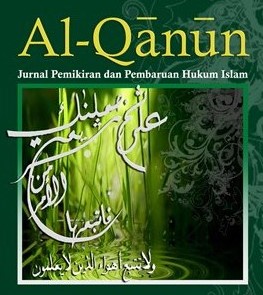Hadis sebagai Sumber Hukum Islam
DOI:
https://doi.org/10.15642/alqanun.2020.23.2.316-339Abstract
Hadith as the basis of Islamic law does not consist of all forms of hadith, even though its veracity has been shown by the Koran. The scholars' from among Muhaddithin, Usuliyyin, and Fuqaha', have formulated the basics of hadith hujjahan, namely al-hadith al-maqbulah (hadith accepted as a source of Islamic law) and al-hadith al-mardudah (a hadith that is rejected as a source of Islamic law). According to them, the hadith of al-Maqbul must be based on the principle of rejecting or accepting a hadith narration, that is, it must be narrated by a narrator who is 'adil and dabit, and in that hadith status there is no' illah al-qadihah (severe disability) and the narrator does not experience shudud (peculiar). Muhaddithi n takes the stance to accept all hadiths, both sahih, hasan and da'if to be practiced, except in a position that is not too weak (da'if). But that is not the attitude of Usuliyyin ', and Fuqaha', they took the basis of istinbat to the hadith that has the value of sahih or hasan which are both ma'mul bih (which can practice), although al-hadi th ghayr al-mutawatirah (a hadith not narrated by many narrators) and give benefits yaqin, and if ghayr ma'mul bih (cannot be practiced), then according to they are rejected as the basis of legal terms.
Downloads
References
’Abd al-Muttalib, Rif’at Fawzi. Tawthiq al-Sunnah fi al-Qur’an al-Thani al-Hijri. Mesir: Maktabah al-Khanajy Halaby, 1981.
Al-Shatiby. Al-Muwafaqat. Vol. 6. Mesir: Al-Maktabah al-Salafiyyah, t.t.
Asqallany, Ibn Hajar al-’. Tahdhib al-Tahdhib. Vol. 1. Beirut: Dar al-Ilmiyah, 1994.
Azami, Muhammad Mustafa ‘, dan A. Yamin. Metodologi Kritik Hadis. Bandung: Pustaka Hidayah, 1996.
Baghdady, al-Khatib al-. Kitab al-Kifayah. Matba‘ah al-Sa‘adah, 1972.
Balazury, Yahya al-. Futuh al-Buldan. Kairo, 1956.
Bayumy, ’Abbas. Dirasah fi al- Hadith al-Nabawy. Iskandariyah: Mu’assasah Shubbab al-Jai’ah, 1986.
Bukhary, Muhammad Ibn Isma’il al-. Matn al-Bukhari. Vol. 4. Jeddah: al-Nashr wa al-Tawzi’, t.t.
Dawud, Abu. Sunan Abi Dawud. Surabaya: al-Hidayah, t.t.
Goldziher, Ignaz. “Muhammedanisch Studien.” Disunting oleh S. M. Stern. Muslim Studies II (t.t.).
Hazm, Ibn. al-Ihkam fi Usul al-Ahkam. Vol. 1. Dar al-Kutub al-’Ilmiyyah, t.t.
Khallaf, ’Abd al- Wahhab. ‘Ilm Usu Fiqh. Dar al-Khuwayriyah, 1969.
Majah, Ibn. Sunan Ibn Majah. Vol. 1. Beirut: Dar al-Kutub al-’Ilmiyyah, t.t.
Malik. Al-Muwatta’. Kairo: Dar al-Ihya’ al-Kutub al-’Arabiyyah, 1951.
Mahmud, ’Abd al-Halim. Al-Ittihad al-Fiqhiyyah ‘Inda al-Muhaddithin. Mesir: Maktabah al-Khanajy Halaby, 1980.
Manzur, Ibn. Tahdhib al-Lisan al-‘Arab. Vol. 2. Beirut: Dar al-Kutub al-Islamiyyah, 1994.
Muslim. Sahih Muslim. Vol. 1. Bandung: Dahlan, t.t.
Qasimy, Jamal al-Din al-. Qawa’id al-Tahdith. Kairo: Dar al-Ihya’ al-’Arabiyyah Isa Bab al-Halaby, 1961.
Ramahurmuzy, Hasan ibn ’Abd al-Rahman al-. Al-Muhdith al-Fasil. Beirut: Dar al-Fikr, 1971.
Rayyah, Muhammad Abu. Adwa’ ‘ala al-Sunnah al-Muhammadiyah. Mesir: Dar al-Ma’arif, t.t.
Salih, Subhy al-. Ulum al-Hadith wa Mustalahuh. Beirut: Dar al-’Ilm al-Malayin, t.t.
Shihab, Quraish. Membumikan al-Qur’an. Jakarta: Mizan, 1998.
Zahrah, Muhammad Abu. Usul al-Fiqh. Kairo: Dar al-Fikr al-’Araby, t.t.
Zuhri, Muh. Hadits Nabi Telaah Historis dan Metodologis. Yogyakarta: Tiara Wacana, 1997.






